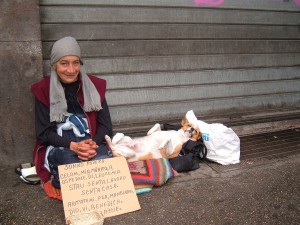 On the occasion of International Roma Day, Eurodiaconia would like to call for European action to address the marginal position which many Roma girls and women continue to have both within the Roma community and broader society.
On the occasion of International Roma Day, Eurodiaconia would like to call for European action to address the marginal position which many Roma girls and women continue to have both within the Roma community and broader society.
Eurodiaconia is a network of 47 Christian-based social service providers and social justice actors across Europe. Its members have been actively involved in promoting equal rights and opportunities for Roma men and women for many years. Members in countries such as Finland, Hungary and Serbia, are supporting Roma girls and women by stimulating grassroots democratic participation, combating negative stereotypes, advocating for adequate access to services and the labour market and providing training and opportunities for skills and educational development.
Our members have found that Roma women are particularly vulnerable to poverty and exclusion because they face discrimination on multiple levels including the double burden of belonging to a marginalised ethnic community and a socioeconomically disadvantaged gender. Furthermore, the tradition of early marriages increases their risk of experiencing poverty, social exclusion and gender-based violence, and undermines the development of skills.
There is a clear need for greater gender-awareness in both policy-making and service delivery. Eurodiaconia calls on the European Commission to collect more gender-disaggregated data on the barriers faced by Roma women, to mainstream gender into its EU Framework on National Roma Integration Strategies, and to introduce a gender category into its yearly NRIS assessments. Eurodiaconia emphasises the importance of recognising and encouraging the potential of Roma women and girls, of promoting awareness of rights and combating anti-Gypsyism, and of working towards better partnerships between the genders and gender generations in projects and services.
Heather Roy, Secretary General of Eurodiaconia, commented: ‘’We need to avoid a narrow approach to Roma inclusion. In order to be meaningful, inclusion processes need to be complemented by effective anti-discrimination measures, and existing strategies at EU and national level should aim to break down barriers and enable equal opportunities for Roma men and women alike.’’
Information on Eurodiaconia’s recent work on Roma and Gender please click here. (EN)